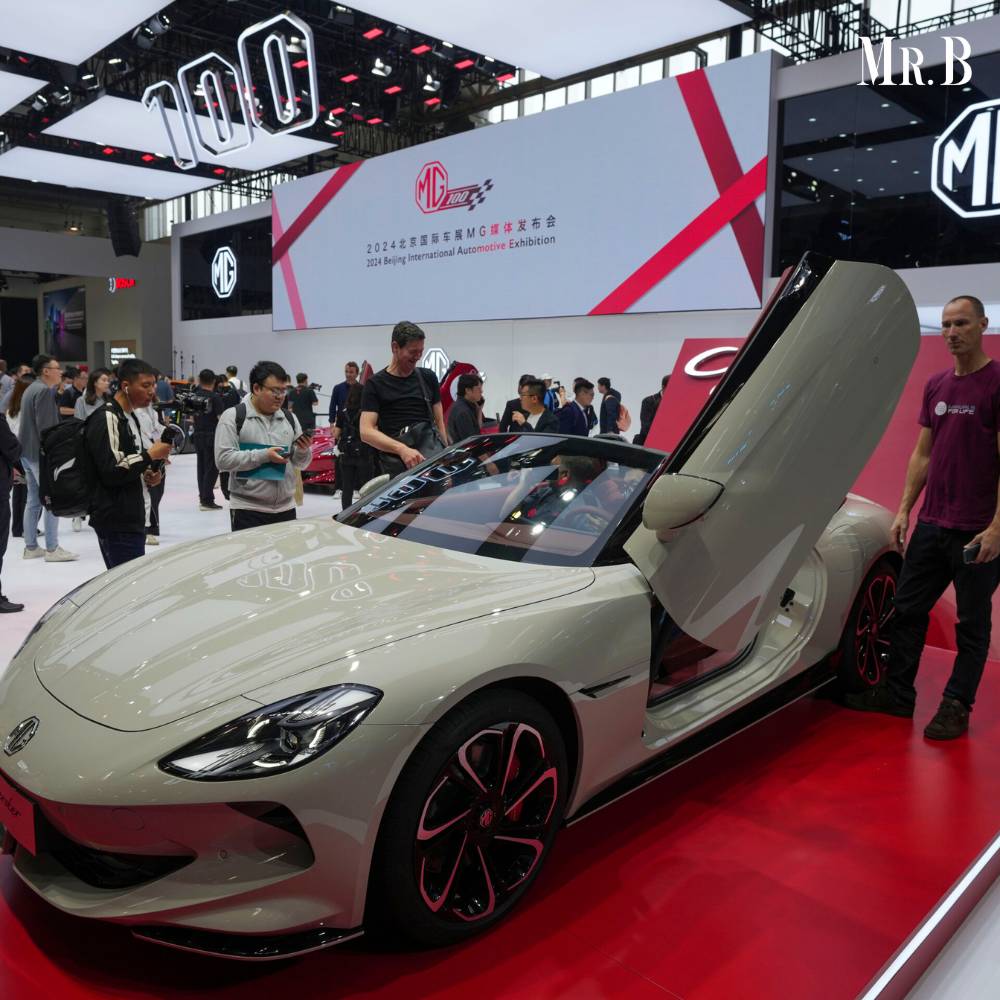The Beijing Auto Show unveiled a futuristic vision of automobiles as more than mere transportation devices, showcasing how Chinese automakers are leading the charge in redefining cars as living spaces. From swiveling front seats that turn the car into an intelligent living room on wheels to expansive digital screens and AI-enabled connectivity, the show highlighted China’s relentless innovation in the automotive industry.
One standout feature was the ZEEKR Mix by ZEEKR, a Geely group company, which debuted with a price tag of 789,000 yuan ($109,000). This vehicle not only boasts a 43-inch screen for rear passengers but also features front seats that can rotate 180 degrees to face the rear, creating a cozy space for activities like playing cards or enjoying a meal. Jason Lin, ZEEKR’s Vice President, emphasized the shift from traditional mass-market vehicles to cutting-edge new energy cars, signaling a broader industry trend.
China’s push towards electric vehicles (EVs) has catalyzed this transformation. In 2023, EVs accounted for a significant 25% share of new car sales, challenging gasoline-powered vehicles’ dominance. However, the evolution goes beyond power sources; it encompasses digital features and connectivity that appeal to tech-savvy consumers.
The Evolving Landscape of Chinese Automakers
The competition among Chinese EV makers has led to a price war, prompting predictions of industry consolidation in the future. Geely’s ZEEKR division, though yet to turn a profit, aims to break even this year, reflecting the intense market dynamics. Additionally, hybrids are gaining traction, with BYD showcasing dual-mode plug-in cars and a hybrid SUV with innovative features like a built-in drone system.
While some envision a future dominated by EVs, Li Xueyong from Chery sees a balanced landscape with 40% fuel vehicles, 30% hybrids, and 30% electric cars. This diversified approach mirrors the broader global market, where different regions have varying infrastructure and consumer preferences.
Internationally, Chinese automakers are expanding aggressively. In Mexico, their market share surged from 2.6% to 19.2% in just a year, signaling growing acceptance. BYD’s entry into Latin America with the Dolphin Mini (Seagull in China) has captured significant market share, especially in Brazil, where they are setting up manufacturing facilities.
Challenges and Triumphs for Chinese Automakers
However, this global expansion is not without challenges. The EU is considering tariffs on Chinese EVs due to concerns about subsidies distorting fair competition. Similarly, in the US and Europe, fears of cheaper Chinese imports disrupting local industries loom large, prompting discussions on trade policies.
Despite these hurdles, Chinese automakers are forging ahead with ambitious plans. BYD’s expansion into Brazil, facilitated by negotiations involving Brazil’s President, underscores the strategic importance of international markets. Other Chinese brands like Chery are also establishing manufacturing bases abroad, ensuring a global footprint in the evolving automotive landscape.
The Beijing Auto Show not only showcased cutting-edge vehicles but also highlighted China’s pivotal role in shaping the future of mobility. As cars evolve into interconnected living spaces, blending technology, comfort, and sustainability, Chinese automakers are at the forefront of this transformative journey, challenging traditional notions of what a car can be.
Curious to learn more? Explore this News on: Mr. Business Magazine







